EU and Türkiye unite in a flagship project
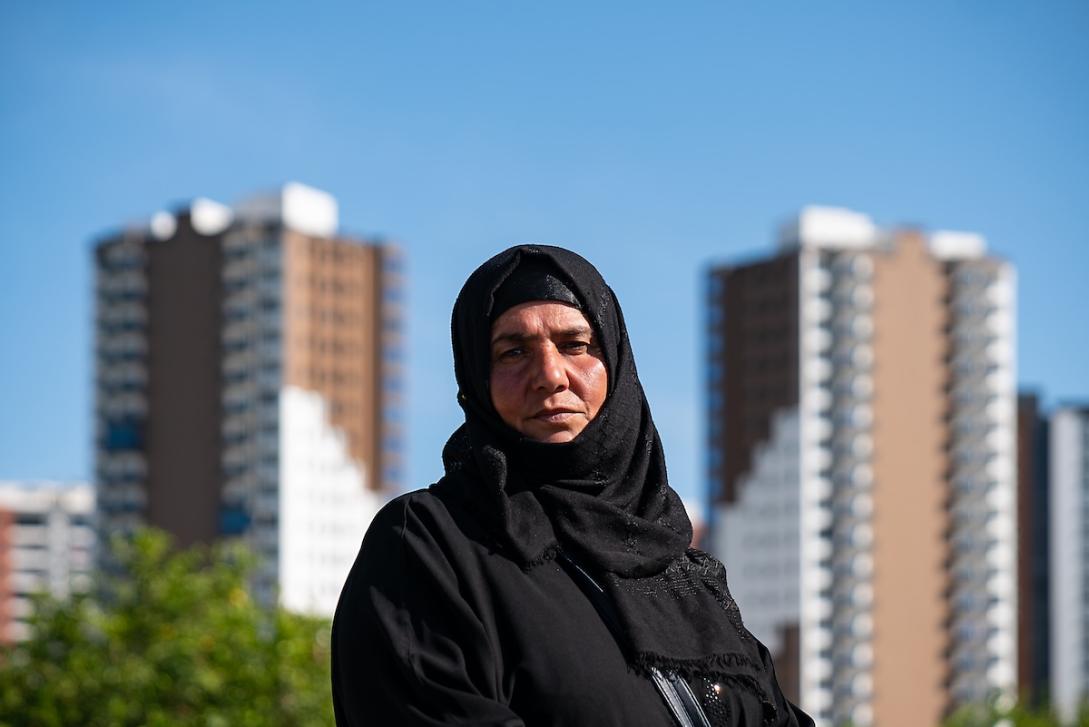
War creates physical and mental trauma. Syrian refugees live with the uncertainties of life. They have suffered the loss of home, the perils of migration, the struggle to settle in Türkiye.
There are reports of bullying, physical and mental health problems, and an in-depth sense of loss.
Mezitli, a district in Mersin, hosts about 250,000 refugees. Many are Syrians.
Psychologist Ayşe Nur Metli works at the centre that supports Mezitli’s community. She says without Migrant Health Centres offering professional primary healthcare services, “these people will feel more broken and left alone with their problems.”
That is why in 2016 the SIHHAT Project was established in Türkiye, created through collaboration between the European Union and Türkiye’s Ministry of Health.
These centres provide psycho-social support and medical treatment to refugees. They help with issues such as legal procedures and identity cards. The model used was recognised as a best practice at the 2019 Refugee Health Forum.
At the core of SIHHAT’s services are immunisation programmes, reproductive health services, and mother and child health services.
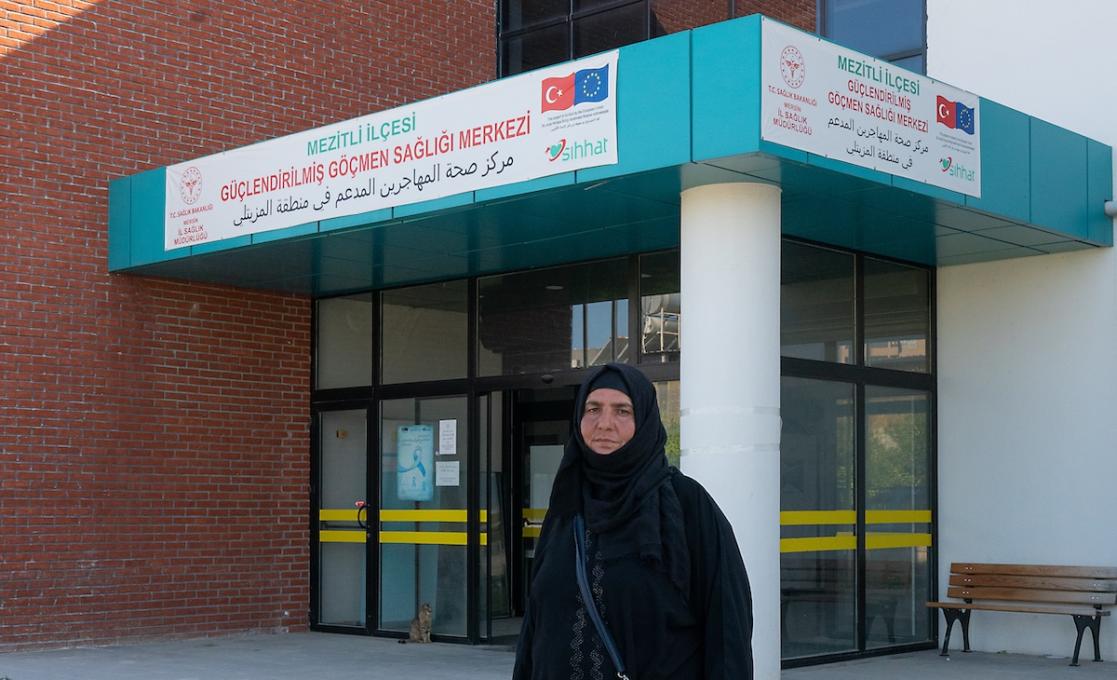
EUROPEAN UNION, 2025
Extended Migrant Health Centre is the place that changed Syrian Yüsra Ammuri’s life.
Mezitli’s Extended Migrant Health Centre is the place that changed Syrian Yüsra Ammuri’s life. She says she would be lost without the centre. It helped her gain her identity cards and, more importantly, supported her through breast cancer.
She came from Syria, eight years ago, with her children and husband, who later died from heart disease. Yüsra left behind her father and sister. Both died in Syria. The first new home was the tent city in Derik, Mardin. She then moved to Şanlıurfa before moving to Mersin to be with her daughter.
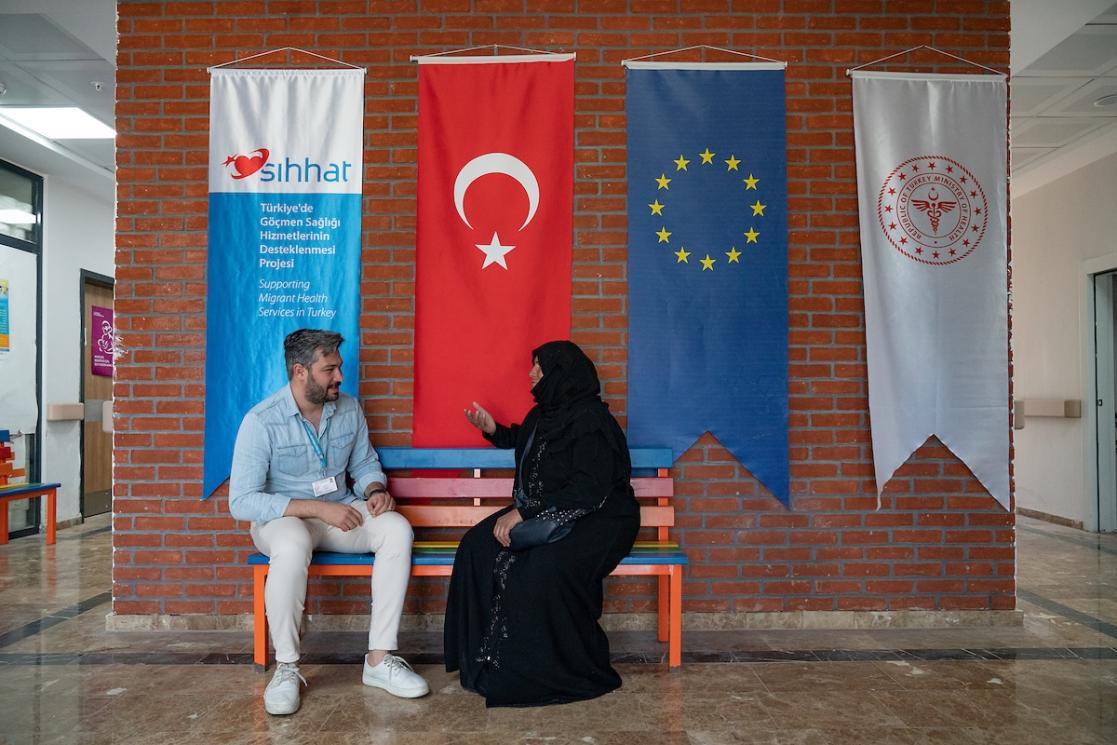
EUROPEAN UNION, 2025
Yüsra’s social worker Ömer Özer helped to settle and guide her in times of difficulty.
He organised health screening and followed up on her needs when she was diagnosed with breast cancer, after she visited SIHHAT cancer screening truck.
Supporting children at school
Included in his help was getting Yüsra’s children into school. He said: “On the condition children go to school, those under 18 get government support if one of the parents is deceased and the other parent is not working. We demanded from the social services that this support is given. Conditional cash transfers for education are now paid on the 15th of every month.
Ömer added: “They come to a different culture than theirs and have difficulty adapting socially. One of our goals is to elevate social harmony.”
The majority of doctors working at the centre is Syrian nationals. This makes the health care easier and allows people to freely express themselves in their native language. Fatih Demirci is the head doctor of the Extended Migrant Health Centre in Mezitli.
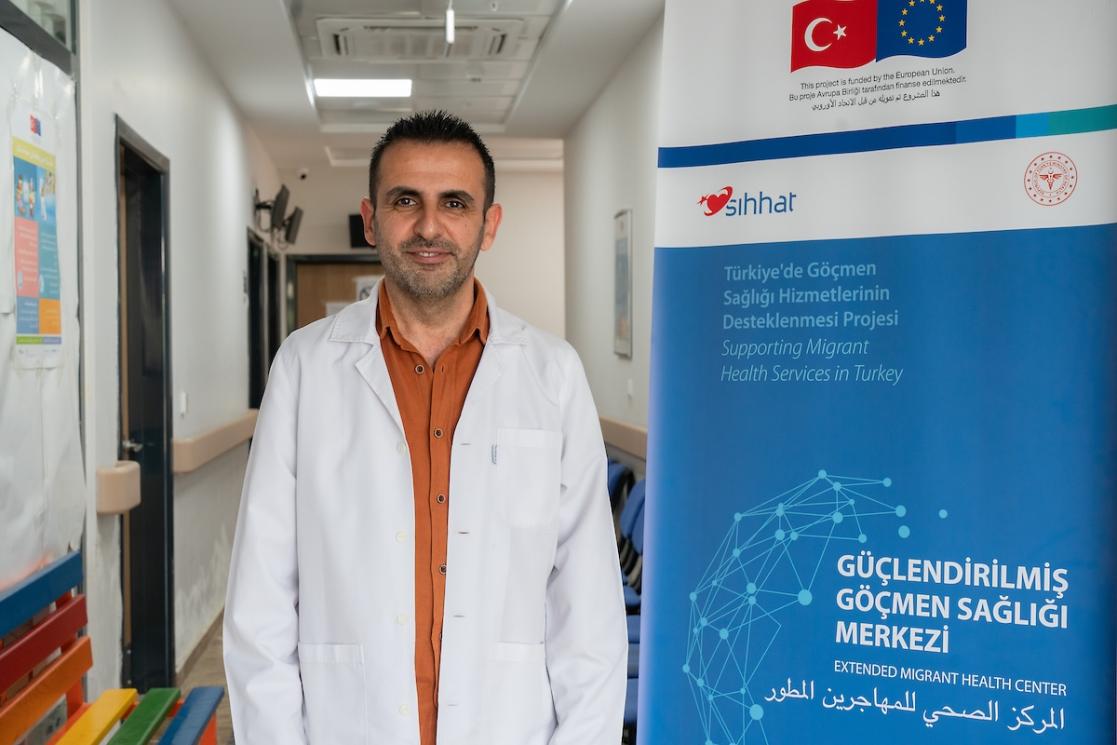
EUROPEAN UNION, 2025
Fatih Demirci, the head doctor of the Extended Migrant Health Centre in Mezitli.
“This building was built two and a half years ago, within the scope of the SIHHAT Project, with the allocation of the land by our Ministry of Health. The SIHHAT Project is implemented to give primary health care to the Syrian population that is under temporary protection in Türkiye.”
“It’s a project started in 2016, signed by our Ministry of Health and the European Union. It’s funded by the European Union and implemented by The Turkish Ministry of Health in 32 provinces.”
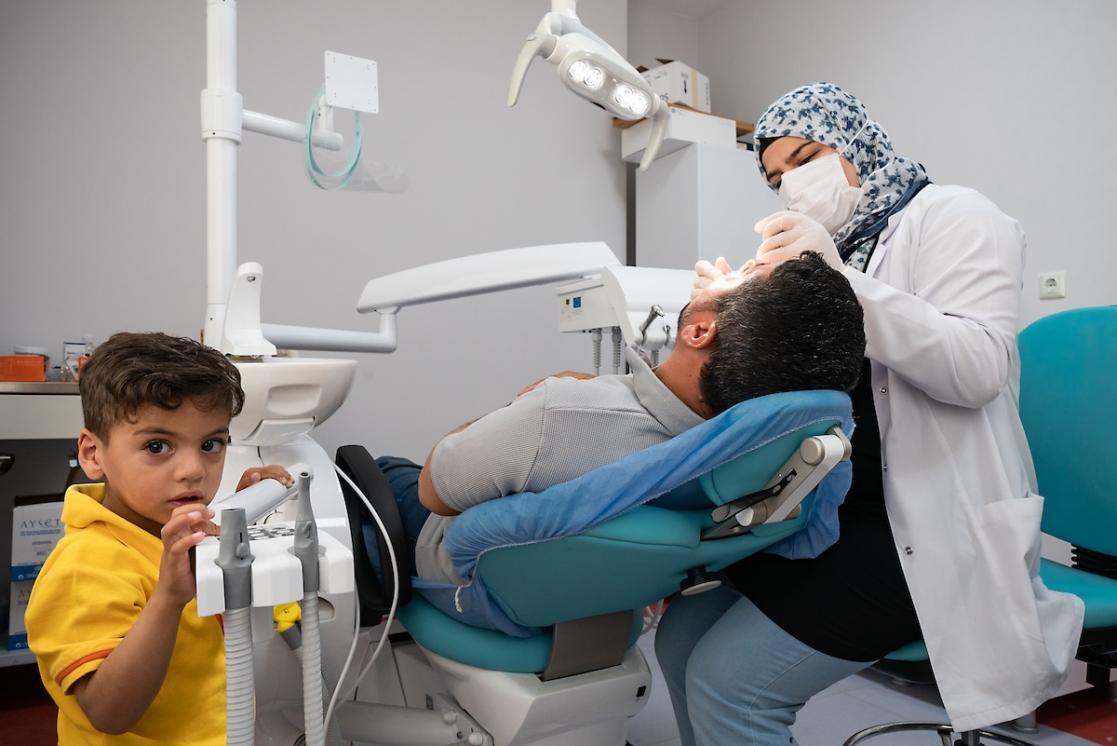
EUROPEAN UNION, 2025
The majority of doctors working at the centre are Syrian nationals.
Three specialist doctors work at the Extended Migrant Health Centre in Mezitli: A gynaecologist, an intern, and a paediatrician. There are also three practitioners and a dentist. In the gynaecology department ultrasound and basic lab services are available. There are also emergency services, immunisation services, reproductive health services and mental health and psycho-social support services in the centre.
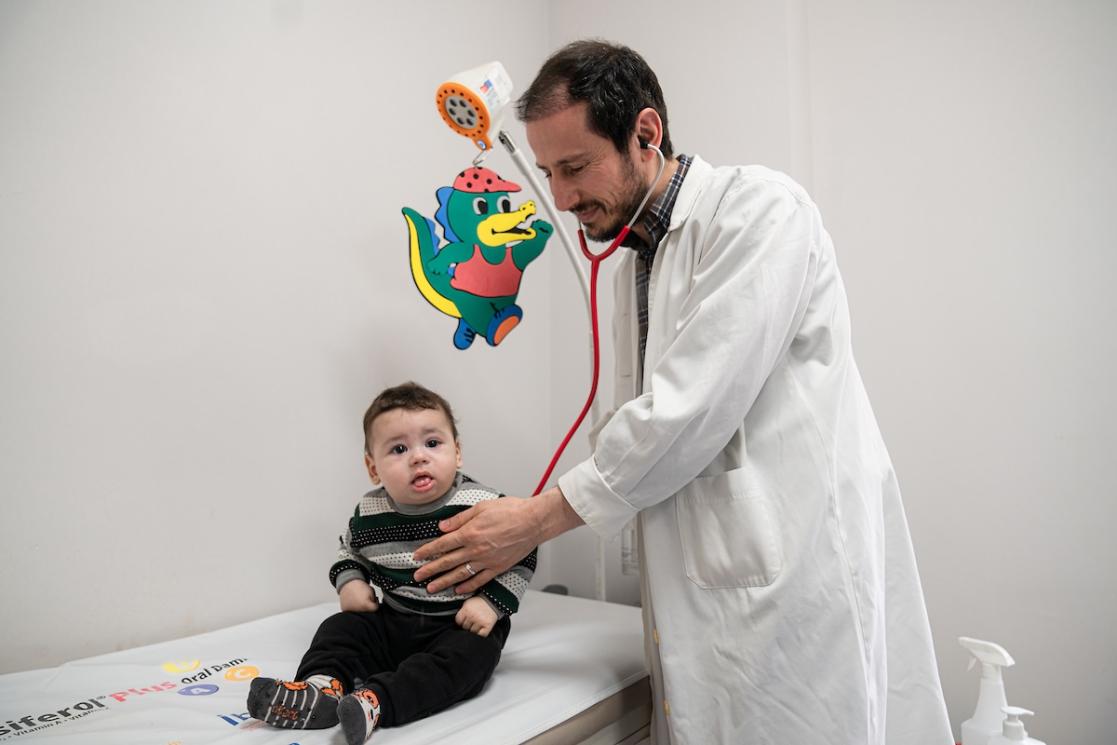
EUROPEAN UNION, 2025
As part of its holistic approach, social workers have intense working schedules. They also deal with the issues patients may have with the Provincial Migration Administration. Social workers often conduct field work, providing outreach visits to households as well as to the schools. Mobile healthcare services are available, with social workers and healthcare staff visiting patients.
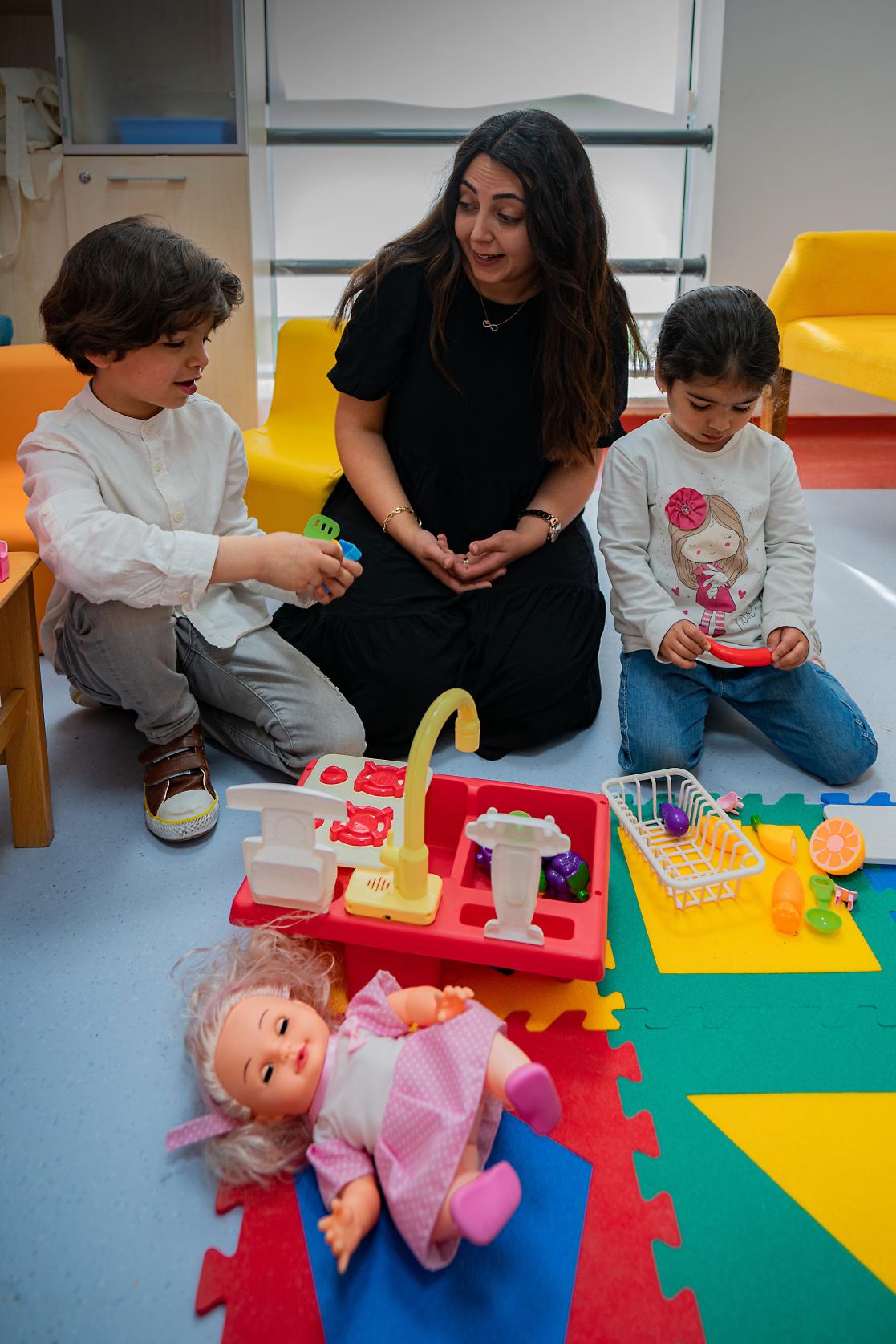
EUROPEAN UNION, 2025
The mental health and psycho-social support team tries to empower the children so they can protect themselves.
There is also much needed psychological support. Psychologist Ayşe says some children face bullying in school. She added: “Families come to us never mentioning the concept of peer bullying, they can’t name the real situation.”
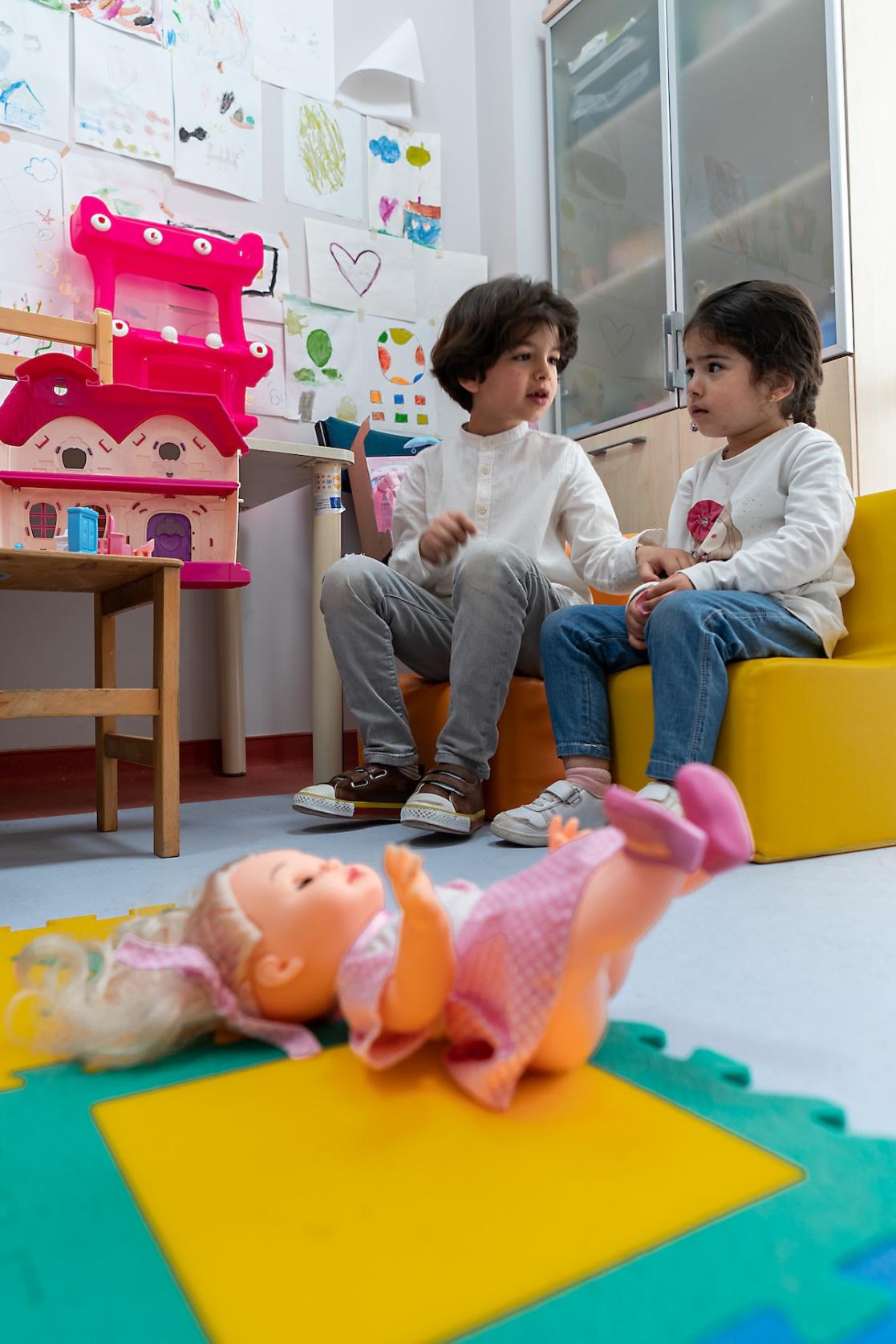
EUROPEAN UNION, 2025
“They sometimes say that their child merely wants to stay at home, on their own. Sometimes they inform us of bedwetting. Families let us know that even when they want to reach out to them themselves, the children unexpectedly get scared.”
The mental health and psycho-social support team tries to empower the children so they can protect themselves.
The EU investment into these health centres, and the cooperation with the Health Ministry provides an essential service for people who face suffering. It gives the answer to Yüsra’s comment: “I don’t know what I’d do, where I’d go, if this centre didn’t exist.”





